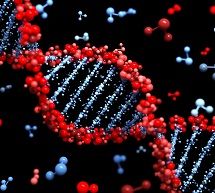Genomic Scoring Useful in Treating Systolic Heart Failure
In systolic heart failure, a fixed dose combinatin of isosorbide dinitrate and hydralazine is more effective in black patients. Building on that information, researchers in Pittsburgh looked at ways to use a genomic score to predict which patients would benefit most.

In systolic heart failure, a fixed dose combination of isosorbide dinitrate and hydralazine is more effective in black patients. Building on that information, researchers looked at ways to use a genomic score to predict which patients would benefit most.
In a report to be presented April 2 at the American College of Cardiology 65th Scientific Session & Expo in Chicago, IL, Dennis M. McNamara and colleagues from the University of Pittsburgh, Pittsburgh, PA presented findings based on participation in the Genetic Risk Assessment of Hearat Failure Therapy (GRAHF) study.
They looked at 350 patients and identified 13 genetic polymorphisms.
The predictive value of genotypes from individual loci was compared to a genomic score in which all genotypes associated with efficacy were combine into a single score, with each high impact geneotype given one point.
The found four genotypes were associated with the drug combo having an increased impact.
The GNB3 TT genotypes, representing half of the subjects, ws the most predictive and was associated with improved, event-free survival after therapy. A four-loci genomic score of 3 or greater was also associated with a greater impact event-free survival.
"The impact of therapy with fixed dose combination of isosorbide dinitrate and hydralazine is predicted better by an overall genomic score than by individual loci," they concluded, showing that "the future of pharmacogenomics for targeting therapy should involve polygenic analysis."